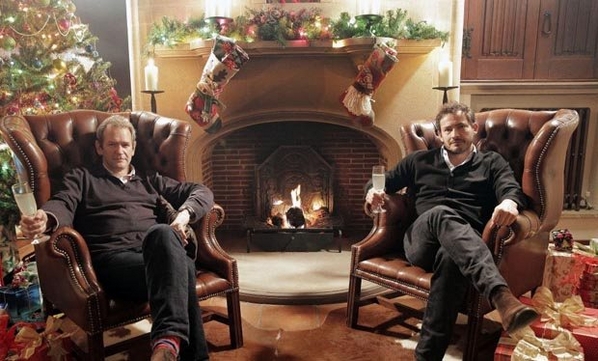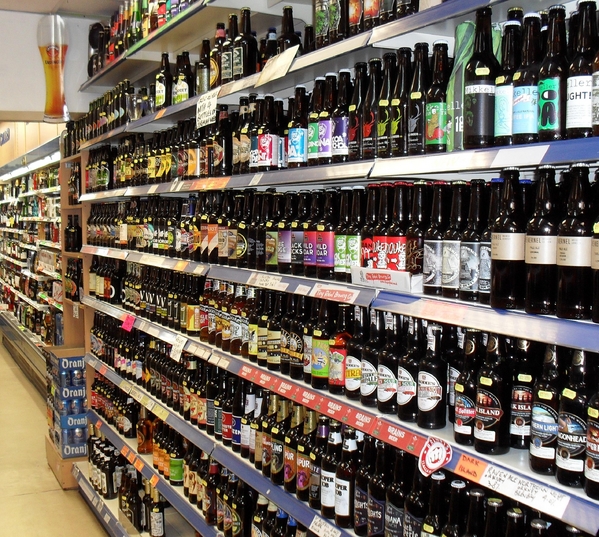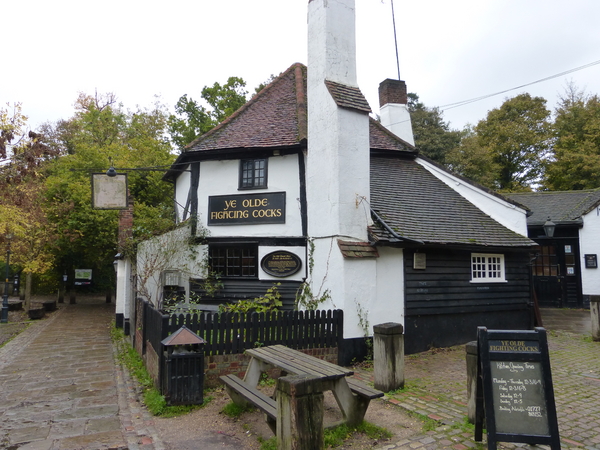Beers sales are booming -- so why the media blackout for great British ale?
Added: Saturday, December 21st 2013

Raise a glass of ale at Christmas – sales are booming. Tesco has announced today (21 December) that in the past week Britain’s biggest supermarket group has sold more than 1.5 million bottles of ale, the highest amount it has ever sold in a single week. The sales are three times as high as for the same week before Christmas in 2011 – and we’re talking of quality ales, not factory beers, ales available in a great diversity of styles.
Tesco says: “A major factor driving sales is growing interest in ale as an accompaniment to food. The growing popularity and availability of ale in pubs is another key factor boosting sales with retailers. Demand for ale has continued to grow for the last few years as younger Brits switch to a tipple that not long ago was still considered the preserve of older male drinkers.”
This heartening news underscores everything brewers and beer writers have been saying for several years: interest in good beer as opposed to industrial lager has never been greater and younger people are switching to the style. Overall beer sales are down but ale is growing within that shrinking market. At around 1,200, there are more breweries in Britain today than at any time since the 1930s.
And yet this dramatic and exciting story is met by an almost total media blackout. On Thursday evening, BBC2 ran an hour-long programme called the 12 Drinks of Christmas that failed to mention beer once. It was presented by comedian Alexander Armstrong and food writer Giles Coren, brothers-in-law who prefer to call one another Xander and Giley. Between them they sampled copious amounts of wine, champagne, cider, brandy, port and gin and which of those drinks went best with food. But no beer.
The programme started with the pair drinking in a London pub owner by Fuller’s. The Chiswick brewery produces London Pride, ESB, Vintage Ale and beer matured in whisky casks, all of which make brilliant companions at the dining table. But Xander and Giley drank wine in the pub. This is the same Alexander Armstrong who advertises Spitfire for Shepherd Neame, another excellent beer for matching with food. If the BBC thought Armstrong’s work for Shepherd Neame amounted to a conflict of interest then the corporation could have chosen a presenter free from such commercial connections, rather than knock out the national drink completely.
The same criticism can be levelled – with knobs on – at the broadsheet press. The Guardian’s Christmas food and drink special this month didn’t mention beer once. It had two articles on wine but nothing on beer. The same held true for its sister paper the Observer, which also ran a seasonal food and drink special and also failed to mention beer. I sent a piece to the Guardian’s Comment & Debate section pointing out the dramatic growth in British beer and breweries but it was not published.
The Guardian used to have a tradition of supporting beer, from Richard Boston in the 1970s, Michael Jackson and then me. That came to a shuddering stop around 10 years ago when I was told by the paper’s food and drinker editor that my column was being terminated “as we think we’ve done beer for long enough”.
Today beer gets an occasional passing mention by wine writer Fiona Beckett.
Some people have suggested that the beer blackout on TV and in the broadsheets is the result of simple snobbery: beer is seen by editors as a down-market beverage while wine is consumed by more “respectable” people. They ignore the clear evidence that more and more people of all ages have good palates for beer and increasingly enjoy it with food.

The BBC and the posh press might care to ponder the views of Tesco ale buyer Chiara Nesbitt, who says: “Ale is an ideal match with the Christmas feast due to its cosy, warming flavours which perfectly complement the roasted, savoury and spicy tastes on offer in the main course as well as with the fruit in the pudding and mince pies plus the cheese and biscuits later on.
“Brewers are increasingly producing new and exciting products with connoisseurship in ale rivalling that in wine. With demand growing at its present rate we believe it won’t be too long before restaurants offer up ale lists with their food menus and cheese courses.”
Chiara adds: “There has never been a more exciting time to drink beer as the last few years have seen an explosion of small brewers producing exciting new beers, often made with locally available ingredients. Sales of bottled ales have been growing steadily since the mid-noughties but this is by far the highest demand we have ever seen in Christmas week, which would indicate that people will be drinking it with their roast turkey.”
Tesco’s beer experts have matched beers to accompany favourite Christmas dinner table foods:
“ *Fish – drink light ales to bring out delicate fish flavours. A recommendation is Castle Rock Harvest Pale – CAMRA Champion Beer of Britain 2010 – or Badger Golden Champion.
*Turkey and goose – malty ales work best to add to the fuller flavours of these birds. Suggested matches are Fuller’s London Pride or Marston’s Pedigree.
*Christmas pudding – contrast the fruit and peel of the pudding with the chocolate malts of Hobgoblin ale or the subtle sweetness of Banana Bread Beer.
*Cheese: Mild cheese – light ales accompany cheeses perfectly: try Wells Eagle IPA. Strong cheese – full-bodied ales marry up perfectly with strong Cheddars. Hobgoblin has a strong flavour. Mature/blue cheeses – aged ales have great depth and flavour and are best to cut through the strong mature cheeses. Recommended is Robinson’s Old Tom, which was voted the world’s best ale in 2009.”
I would add that ale is also a brilliant companion with vegetarian main courses. Yesterday in the Old Fighting Cocks in St Albans, vegetable parcels, including beetroot, went superbly with Moorhouse’s White Witch. IPA is good for cutting the flavours of roasted vegetables while the spicy notes of vintage and Christmas ales go well with tofu-based dishes, especially when the tofu is marinated in ale.
Tesco says: “Ale has been one of the great success stories in the UK drinks industry recently and in the last five years Tesco has increased its selection from just 200 in 2006 to 350 brews now. This year Tesco has sold a record 44 million bottles of ale.”
Is anyone in the media listening or are editors so besotted by wine that they won’t consider beer a worthwhile subject to write about. It’s time they woke up and smelt the barley and got behind a dynamic British brewing industry that creates jobs as well as pleasure.
So I toast Christmas with good ale and also raise a glass to my friends in the British Guild of Beer Writers who spare no effort to promote the drink they love but get little or no support from fellow journalists. I praise brewers, both old and new, for their efforts to increase the diversity of their portfolios. And I wish our publicans every success in the new year and better conditions than many have endured in 2013.






